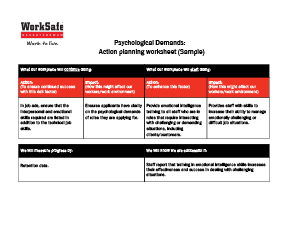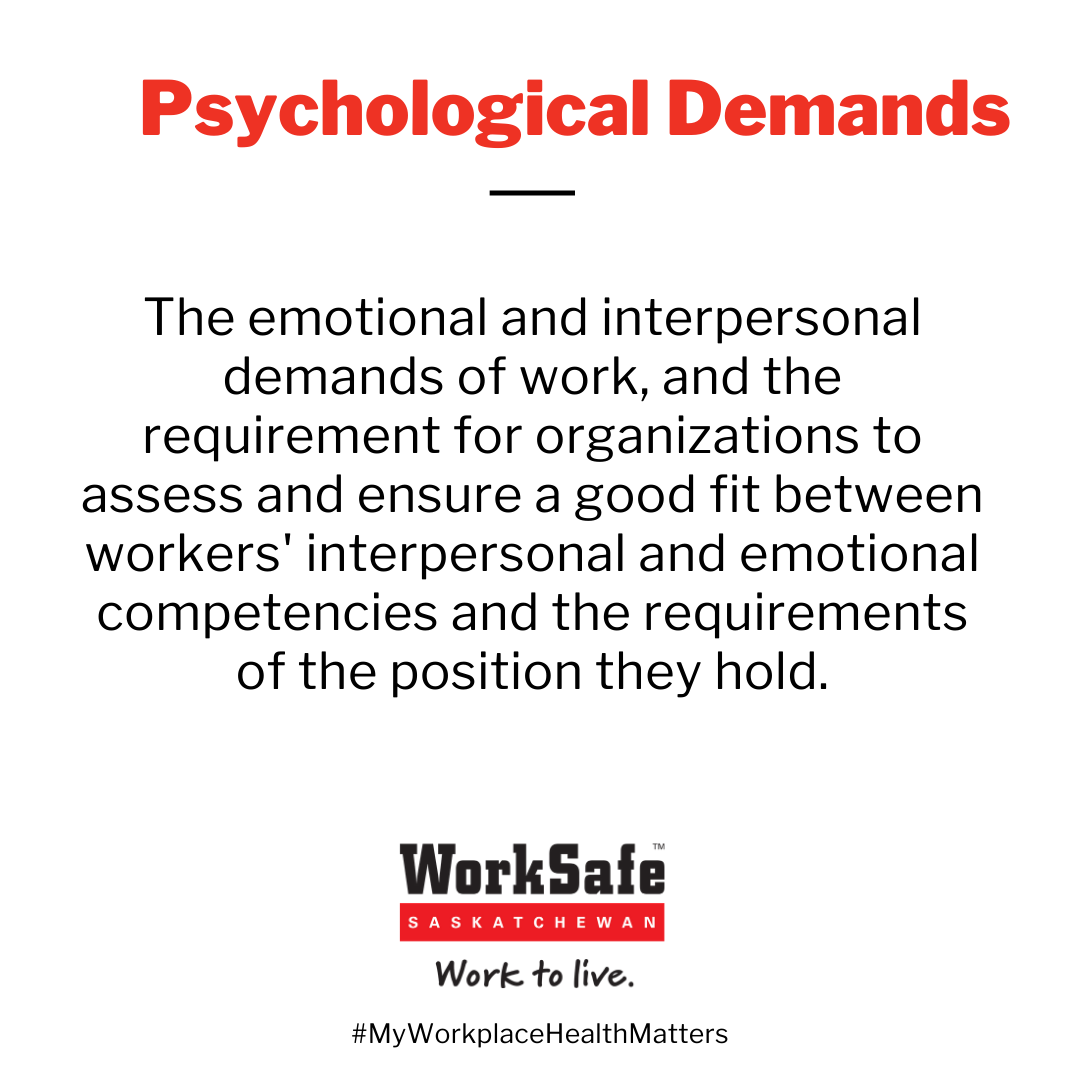 Psychological demands
Psychological demands
Includes the emotional and interpersonal demands of work, and the requirement for organizations to assess and ensure a good fit between workers’ interpersonal and emotional abilities and requirements of the position they hold.
“I am convinced that nothing we do is more important than hiring and developing people. At the end of the day you bet on people, not on strategies.” – Lawrence Bossidy, GE
Overview
What are psychological demands?
Psychological demands of any given job are documented and assessed in conjunction with the physical demands of the job. Psychological demands of the job will allow organizations to determine whether any aspect of the job might be a hazard to the worker’s health and well-being. When hazards are identified, organizations can consider ways of minimizing risks through work redesign, analysis of work systems, risk assessment, etc. The assessment of psychological demands should include: assessment of time stressors (including time constraints, quotas, deadlines, machine pacing, etc.); breaks and rest periods; incentive systems (production bonuses, piece work, etc.); job monotony and the repetitive nature of some work; and hours of work (overtime requirements, 12-hour shifts, shift work, etc.).
An organization with a good psychological demands assessment process for its workers would be able to state that:
- The organization considers existing work systems and allows for work redesign.
- The organization assesses worker demand and job control issues, such as physical and psychological job demands.
- The organization assesses the level of job control and autonomy afforded to its workers.
- The organization monitors the management system to address behaviours that impact workers and the workplace.
- The organization values worker input, particularly during periods of change and the execution of work.
- The organization monitors the level of emphasis on production issue.
- The organization reviews its management accountability system that deals with performance issues and how workers can report errors.
- The organization emphasizes recruitment, training and promotion practices that aim for the highest level of interpersonal competencies at work.
FAQs
Action
Next steps: Giving consideration to psychological demands in the workplace
Psychological Demands is psychosocial factor 5 from CAN/CSA-Z1003-13/BNQ 9700-803/2013 – Psychological Health and Safety in the Workplace. Retrieved from: https://www.csagroup.org/article/cancsa-z1003-13-bnq-9700-803-2013-r2018/. See also Guarding Minds at Work (Samra et al.): Retrieved from https://www.guardingmindsatwork.ca/resources.




